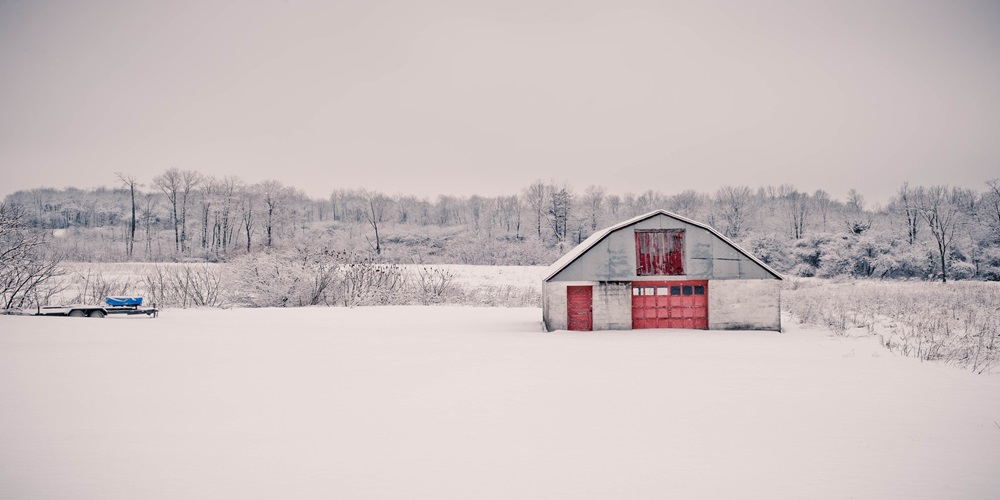As winter blankets Canada with snow and freezing temperatures, homeowners face the challenge of preparing their properties for the harsh conditions. Often overlooked, the garage door is a critical element that can be greatly affected by winter weather. This article provides essential tips for Canadian homeowners to ensure their garage doors are winter-ready, preventing issues that can arise during the colder months.

1. Insulation for Temperature Control
- Energy Efficiency: Proper insulation not only helps regulate the temperature inside the garage but also contributes to overall energy efficiency in the home.
- Prevention of Freezing: Insulation helps prevent freezing of garage door components, ensuring smooth operation during winter.
2. Lubricate Moving Parts
- Cold-Weather Lubricant: Before winter sets in, use a lubricant designed for colder temperatures on all moving parts, including rollers, tracks, and hinges.
- Reduction of Friction: Lubrication reduces friction, allowing the garage door to operate smoothly even in freezing conditions.
3. Check and Tighten Hardware
- Cold-Induced Shrinkage: Cold weather can cause materials to contract. Regularly check and tighten any loose bolts, nuts, or other hardware to prevent issues related to contraction.
- Prevention of Misalignment: Tightening hardware ensures that the garage door remains properly aligned, preventing jams or misalignments during winter.
4. Examine Weather Stripping
- Sealing Gaps: Inspect the weather stripping around the garage door and replace any damaged sections. This helps to seal gaps, preventing cold air and moisture from entering the garage.
- Enhanced Insulation: Adequate weather stripping contributes to improved insulation, keeping the garage and its contents warmer during winter.
5. Clearing Snow and Ice Buildup
- Regular Snow Removal: Clear snow and ice from the garage door and surrounding areas promptly to prevent the formation of ice dams, which can affect the door’s operation.
- Preventing Obstructions: Keeping the area around the garage door clear reduces the risk of obstructions and ensures smooth opening and closing.
6. Test Garage Door Balance
- Smooth Operation: A well-balanced garage door operates smoothly. Test the balance by disconnecting the opener and manually opening and closing the door. Adjust the springs if necessary.
- Avoiding Strain on Components: A balanced door reduces strain on the opener and other components, promoting longevity.
7. Reasons Why Your Garage Door Won’t Work in Winter
- Cold Weather and Lubrication: In freezing temperatures, lubricants may become less effective, leading to sluggish or non-responsive garage doors.
- Contracting Materials: Cold-induced contraction of materials can cause misalignments, preventing the smooth operation of the garage door.
Conclusion:
Taking proactive measures to winterize your garage door is essential for maintaining its functionality during the harsh Canadian winter. By insulating, lubricating, checking hardware, examining weather stripping, clearing snow and ice, and ensuring proper balance, homeowners can avoid the common issues that arise in colder temperatures.
For homeowners facing persistent issues with their garage doors during winter, seeking professional assistance is crucial. Experienced technicians can diagnose and address the reasons why your garage door won’t work in winter, ensuring that your garage remains operational and secure throughout the season. Don’t let winter weather compromise the functionality of your garage door – take the necessary steps to keep it winter-ready with the help of reliable garage door services in your area.